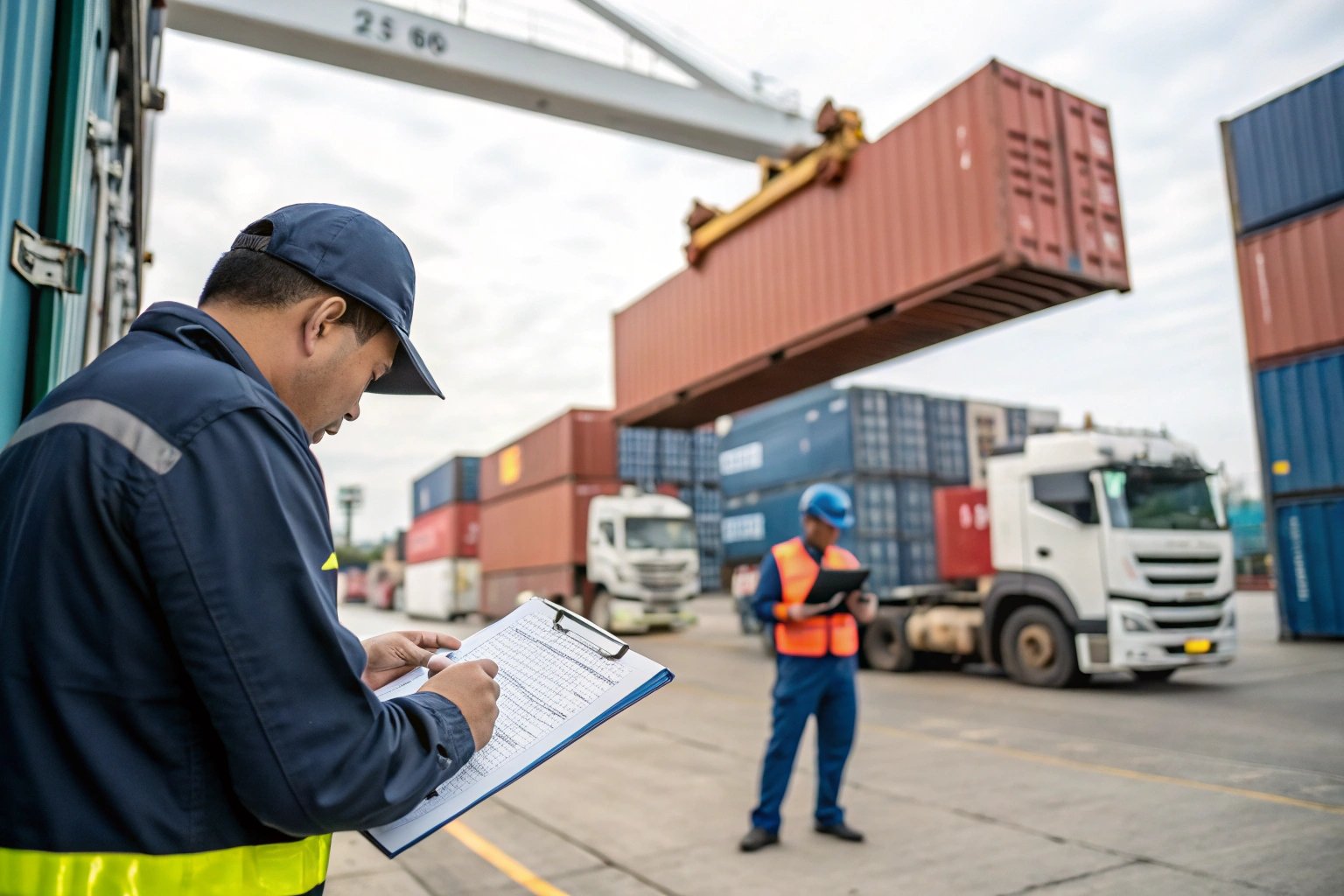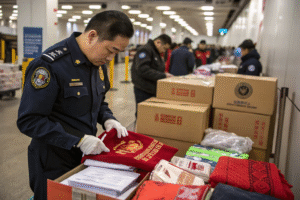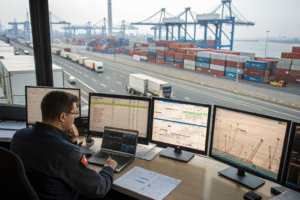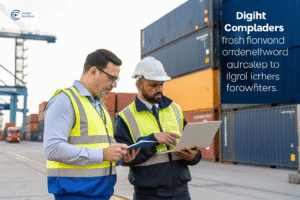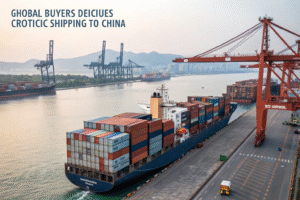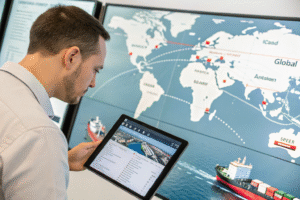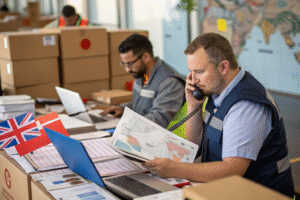Your cargo is on the move — but who’s actually responsible if something goes wrong? This question matters more than most importers realize, especially during long international transit.
Freight forwarders coordinate your shipment’s journey but are not automatically liable for cargo damage or loss. Their legal responsibility depends on their role, contract terms, and whether cargo insurance is in place.
If you’re shipping internationally, understanding who’s accountable — and how to protect your goods — is essential. Let’s unpack it step by step.
Legal responsibilities of freight forwarders in transit
Freight forwarders are logistics coordinators — not carriers or insurers. Their legal duty is to book transport, prepare documents, and ensure your cargo moves as agreed.
By default, freight forwarders are not legally liable for cargo loss unless they acted negligently or violated their duty of care. Their responsibility is defined by contracts and international shipping laws.

What does the law say?
| Role | Legal Duty |
|---|---|
| Freight Forwarder | Acts as agent to book carriers and organize transit |
| Carrier (e.g., Maersk, Emirates) | Legally responsible for damage during their custody |
| Customs Broker | Responsible only for correct filing, not cargo movement |
| Warehouse/Trucker | Liable while goods are physically in their possession |
At GeeseCargo, we operate as both forwarder and NVOCC (Non-Vessel-Operating Common Carrier) for many shipments. This gives us more operational control — and in some cases, liability — for full-container loads.
What are forwarders responsible for?
- Booking space and confirming sailings/flights
- Ensuring documentation is compliant
- Coordinating pickup and delivery
- Monitoring cargo progress
- Alerting clients to delays, issues, or claims eligibility
They’re not automatically responsible for accidents, theft, or acts of nature unless proven negligent — like failing to secure packaging or choosing an unlicensed carrier.
Who is liable for cargo damage or loss?
It’s one of the most common — and misunderstood — questions in freight. If your goods arrive broken or don’t arrive at all, who pays?
Liability for cargo loss or damage depends on where and how it occurred. Carriers typically bear responsibility during transport, but compensation is limited unless cargo insurance was purchased.

Who holds liability at each stage?
| Stage | Responsible Party | Typical Limit |
|---|---|---|
| Pickup to Port | Trucker / warehouse | $0.50–$2.00/lb |
| Port to Port (Ocean) | Carrier (Maersk, COSCO, etc.) | $500 per container (Hague Rules) |
| Airport to Airport (Air) | Airline | ~$20/kg (Warsaw/Montreal Convention) |
| Delivery to Buyer | Trucking partner / local agent | Variable by contract |
Unless you opt for cargo insurance, these limits may not cover your actual cargo value.
We once supported a client whose $8,000 shipment of electronics was damaged at sea. The carrier offered $500 (under Hague Rules). Fortunately, they had taken insurance through us — and recovered the full claim.
How forwarders help minimize shipping risks
Even if they’re not always liable, professional freight forwarders play a big role in protecting your cargo.
Freight forwarders reduce risk by advising on packaging, selecting reliable carriers, managing documentation, tracking shipments, and flagging potential issues in transit.

What steps do forwarders take?
| Risk | Preventive Action |
|---|---|
| Physical damage | Advise on export-grade packaging and palletization |
| Loss/theft | Book trusted carriers and bonded warehouses |
| Delays | Track ETAs and reroute if issues arise |
| Customs holds | Verify HS codes, prepare complete paperwork |
| Misrouting | Label clearly, monitor handovers |
At GeeseCargo, we implement a pre-shipment checklist for every DDP order:
- Verified carton weight/dimensions
- Pallet wrapping photos
- Shipping mark accuracy
- Waybill and document match-up
- Weather routing checks (for ocean)
Our clients say these small steps have helped them reduce shipment issues by over 80%.
Does communication matter?
Yes — a lot. Late or poor communication is a major cause of delays. We keep clients informed at every milestone and alert them immediately if something seems off.
Fast action = fewer losses.
Insurance options for protecting international shipments
For true peace of mind, especially with high-value goods, cargo insurance is a must. It’s the only way to ensure full recovery if something goes wrong.
Cargo insurance protects your goods in transit against damage, loss, or theft — typically covering the full invoice value, plus freight and an additional 10%.

What are the common insurance types?
| Coverage Type | Description |
|---|---|
| All Risk (ICC A) | Covers most damages unless excluded (best protection) |
| Named Perils (ICC B/C) | Covers only listed events (e.g., fire, stranding) |
| Free of Particular Average (FPA) | Very limited — mostly total losses |
| War & Strikes Add-on | Optional for shipments through conflict zones |
We offer door-to-door All-Risk insurance for both sea and air shipments through reputable providers like Ping An, Allianz, or CargoCover.
What does insurance typically cost?
- 0.3%–0.5% of cargo value
- Minimum premium: $25–$50
- Higher for fragile or temperature-sensitive goods
For example:
$20,000 cargo x 0.004 = $80 insurance premium
If cargo is damaged or lost, payout = $20,000 + $2,000 freight + $2,000 buffer = $24,000 total
That’s why most of our DDP clients include insurance by default. It’s a small price to avoid major risk.
Conclusion
Freight forwarders are not automatically responsible for cargo safety — but they are your first line of defense. They reduce risks, help you prepare, and connect you to the right insurance coverage. With a forwarder like GeeseCargo, you stay protected, informed, and ready for anything the supply chain throws your way.
